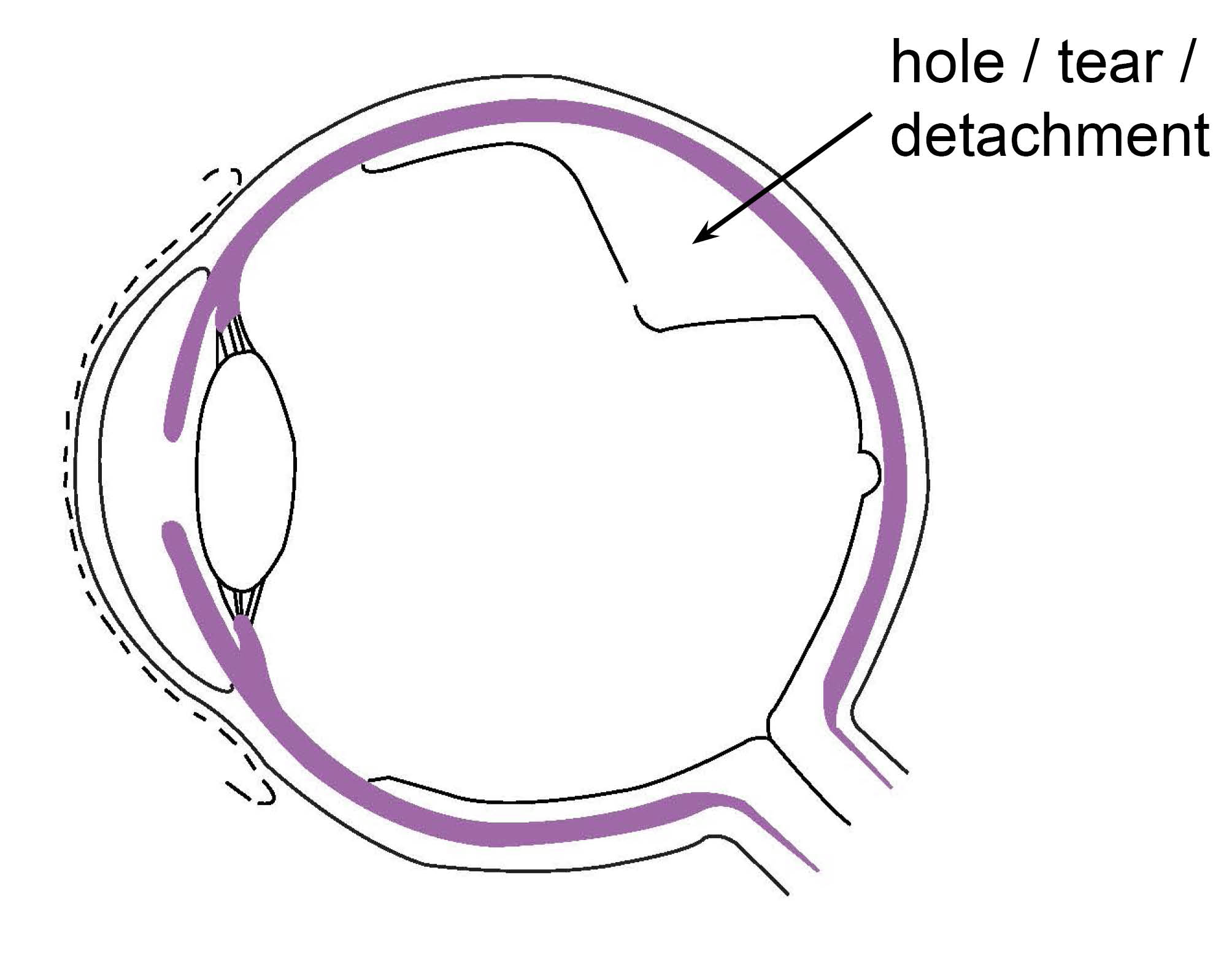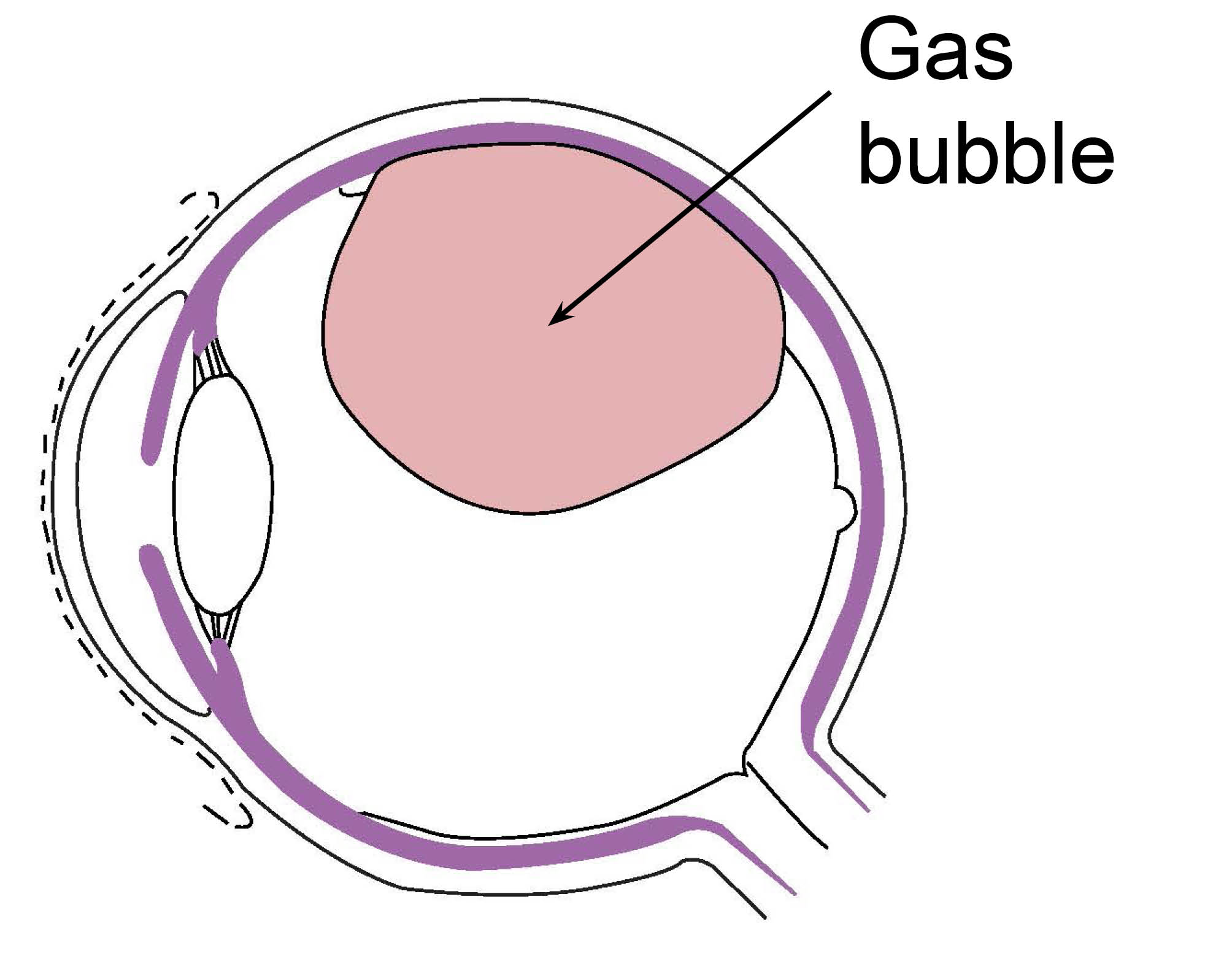Positioning (Posturing) following vitreoretinal surgery to your eye
Information for patients from the Ophthalmology Department
After your surgery, you have been advised to position your head to help your eye heal. The following leaflet explains how and why this is done. If after reading this leaflet you still have questions, please contact the Eye Casualty Department at William Harvey Hospital on 01233 616232.
Why do I need to ‘posture’ following surgery to my eye?

Following surgery you need to ‘posture’ because you have a gas bubble inside your eye. It is very important to do this, as the success of your operation will depend on your ability to ‘posture’ as instructed.
The aim of ‘posturing’ is to help flatten your retina (the inner layer of the eye) back in to place and seal any holes or tears.
How long will it take for the gas bubble to disappear from my eye?

You may see the gas bubble as a black fluid line. It gets lower with time as it is absorbed into your body, until it completely disappears. This may take several weeks.
Do not expect to see very much from your eye whilst the bubble is present.
You must follow this advice
Posture for 50 minutes in every hour, with your head in the position described by your doctor / nurse.
You do not always need to lie down to posture. A pillow may be placed on a table to help you ‘posture’ in a sitting position.
Sleep on the side recommended by your doctor / nurse.
You can wash your face (and shave normally), but do not rub or press on your eye. Keep water out of your eye when washing your hair.
You should use the eye drops and any other medication as prescribed.
Your eye may look red and be slightly painful after your operation. This will gradually get better as you use your drops and take prescribed pain relief. If your pain is not controlled, please contact the ophthalmology on-call clinician for advice (see contact details below).
When can I return to my normal routine?
After you have been to your first follow-up appointment, the ophthalmology clinician will advise you about returning to your normal routine. This generally means that you can return to work, if your work is not heavy. You may take light exercise, but you must be careful to avoid direct injury to your eye. If you have any questions, please ask the doctor at the clinic.
What if my eyesight starts to get worse at home?
If you notice any part of your sight getting worse, contact the Eye Casualty Department on Rotary Ward immediately (see contact details below).
When can I travel by plane again?
You should not travel by plane with a gas bubble in your eye, until your consultant has told you that it is safe to do so; this can take up to two months.
What should I do if I am worried about my eye?
Please remember that most patients have a very good result from their surgery. If you develop any problems following your operation, please call us using one of the numbers below.
Eye Casualty Department (Rotary Ward), William Harvey Hospital, Ashford
Telephone: 01233 616232Channel Day Surgery Unit, William Harvey Hospital, Ashford
Telephone: 01233 616263
If you need to change or cancel the date of your surgery, please contact the hospital’s theatre co-ordinator on 01233 616757.